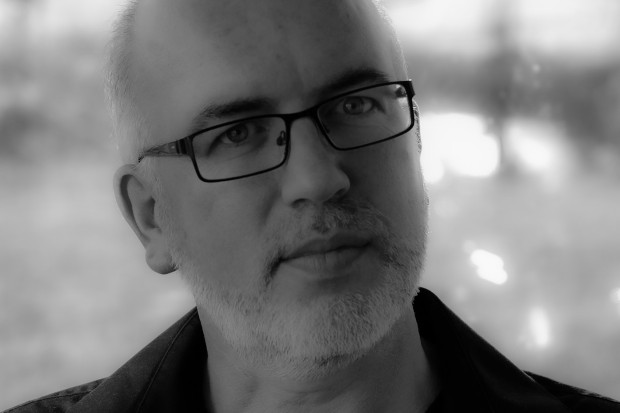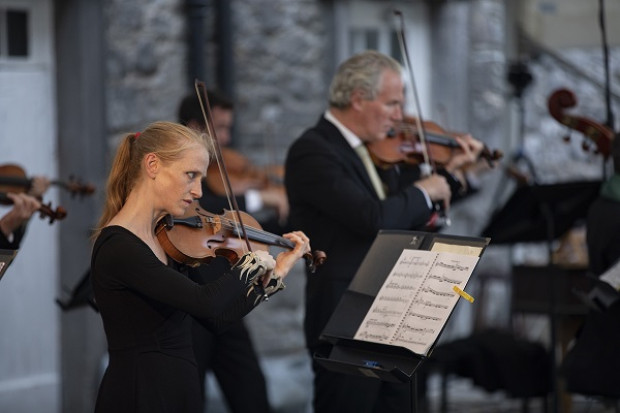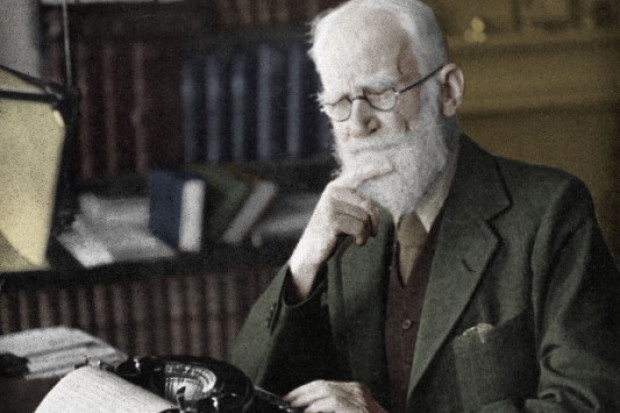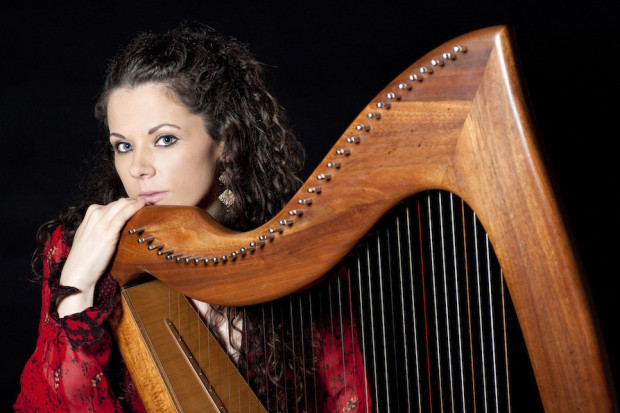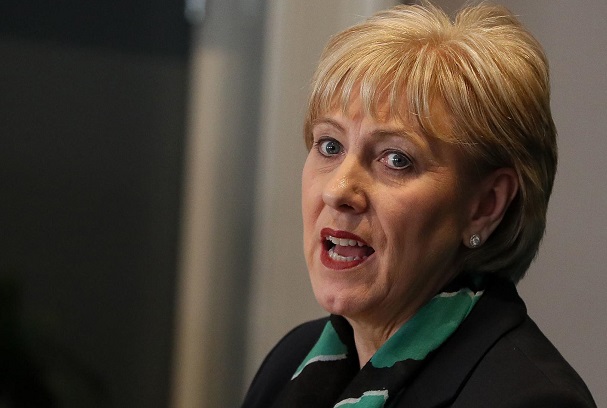
Minister for Social Protection, Community and Rural Development and the Islands Heather Humphreys
Musicians and Identity – Why There Was Such a Strong Reaction to Minister Heather Humphreys' Comments
Over the last week, musicians have been railing against comments by the Minister for Social Protection Heather Humphreys. In the Dáil last Wednesday (29 July), commenting on the Pandemic Unemployment Payment, she said, ‘… some jobs will not come back and there is no point in waiting for the never ever. It is best that we help people to reskill, retrain and look at other jobs they can take up.’ It was picked up by the newspapers and online and musicians took great offence.
Minister Humphreys’ comments, however, were taken out of context in the media and on social media and she nowhere suggested that musicians and artists should ‘reskill’ or ‘retrain’, and she emphasised this in a tweet a few days later. In fact, just before her comments above, she said in the Dáil that she had asked her officials in the Department to take a ‘sensible approach’ for ‘those who cannot return to work and who are waiting for their job to come back’, i.e. artists, musicians and arts workers.
Nonetheless, the question must be asked as to why this commentary, which had not been directed towards musicians, engendered such a visceral response from them. Singer Brian Kennedy said the remarks were ‘insulting… a profound misunderstanding of the arts and artists’. Singer Luan Parle said she was ‘absolutely shocked, saddened, outraged and disgusted’.
The effects of the current roadmap on musicians have been well covered in the media and, much like publicans, the pandemic is having a devastating effect on their profession. The Humphreys comments appear to have touched on another nerve, however, a way of thinking about society, employment, work and the economy that is incongruous with the creative life.
Expression of identity
The concept that careers must serve an economy, rather than a society, ignores the fact that, for many, careers are an expression of identity. Our identities do not exist in vacuums, and academic researchers have argued that our identity cannot be sustained unless acknowledged by others. In the current climate, where a musician is unable to perform and they cannot obtain that acknowledgement, even the idea of ‘retraining’ or ‘reskilling’ can threaten the confidence of musicians.
Neo-liberal economics further undermines our concept of identity through the idea that the expression of our everyday selves, much of which takes place in our workplaces, is functional rather than related to an expression of who we are.
In education, for example, a teacher is not an automaton devoid of conscious engagement with the process of teaching; they are not simply a random member of society that drifts into a career out of convenience. We accept, more readily than in other professions, that teaching is vocational and that there are those for whom it has become not only core to their own identities, but core to the view of who they are by those surrounding them – society. In health, through observation, we believe nurses to have the keenly developed propensity to care and we often opine, ‘I couldn’t do that’. We never consider the vocation as anything other than inextricably tied to the core of such a person’s identity as a care-giver, an altruist and a member of society, without which, we could not function.
The manner in which Minister Humphreys’ comments were taken to heart by musicians may be related to the way in which many understand the arts. From an early age, by extension of the culture of becoming a musician, for example, artists engage in social settings with other artists. We learn the language of music; we envelope ourselves in the aural landscape and many of us who have continued to develop our musicianship to a professional, or even semi-professional level, have the capacity to manipulate that landscape.
Perhaps part of the problem is the number of people that have had a passing engagement with music, or consider themselves amateur musicians, and therefore view the arts as a past-time rather than a viable career that has an inherent value to society. Perhaps too, the way in which musicians engage in the conjuring of melody, and the spells that harmony creates inducing emotional reactions in those who witness its invocation, creates the perception of a musician as a societal anomaly.
To return briefly to the manner in which others look on nursing and say ‘I couldn’t do that’; would it not be more accurate, and perhaps more honest, to say, ‘I am sure I am capable of carrying out the functions but I wouldn’t have the patience, or the required empathy’? The reality is that all such vocations, rather than being functional ‘jobs’ designated to service a society’s requirements of its participants, are in fact similar. All roles in our society are expressions of the identity of those that perform them.
Music, dance, painting, composing, creating and performing are not parlour tricks. Neither are they some sort of wizardry that proponents have picked up over various semesters in Hogwarts. The arts may appear magical to many, but they are no more magical than nursing or teaching. The talents of those engaged in nursing, in teaching, in accountancy, in politics even, as well as those in the arts all hold one thing in common – they are expressions of identities formed over the course of life spent engaged in the passion of serving a higher purpose in society than economic convenience – the passion of serving one’s own place in that society.
Unenlightened commentary
Many musicians were offended by the comments related to reskilling, retraining and looking for ‘other jobs they can take up’. Perhaps the consternation is created by a context of facile and unenlightened commentary attributable to the neo-liberal agenda which could not reasonably be applied to other elements of our identities as defined by the other social groups we are part of – being friends, being spouses/partners, being parents, being a particular nationality, speaking a particular language. Would it be acceptable to say ‘you have lost a loved one and they will never return, so retrain and invest that love elsewhere, wherever this society requires it of you’? Would a Minister for the Gaeltacht dare to comment ‘your language is dead – retrain in Chinese, it will be good for the economy’?
Music, and the arts more generally, are not only expressions of identity in the truest sense, they are core to the very fabric of society, for a society should require nothing of us but our very participation expressed in the manner most consistent with our individuality, and, if that concept alone could be appreciated by government, then perhaps our society would engender a greater attraction to those who are currently having difficulty participating. This government speaks of a ‘New Normal’ and yet Minister Humphreys’ comments, which were misinterpreted in relation to musicians, remain consistent with the neo-liberal agenda evident in her current portfolio in the Department of Social Protection, focused as they are on fitting those persons for whom she was appointed to serve into our old society, or ‘Old Normal’.
If we are going to accept a ‘New Normal’ then let us make it the most appropriate normal for our society currently. Let us do so by allowing the members of our society to dictate its creation, through the spells that each of us weave in engaging in the behaviours that express the identity in each of us. In the words of a fictional chocolatier, ‘We are the music-makers and we are the dreamers of dreams’. Perhaps the ‘muggles’ in Government would be better advised to facilitate artists, and all professionals, in realising the dream of what our society could be, instead of taking an à la carte view of the economic value of each role within that society.
Published on 6 August 2020
Colm Kelly is a PhD candidate based in the Irish World Academy of Music and Dance at the University of Limerick. His research focuses on the formation of identity for musicians based on the social groups that musicians participate in.










